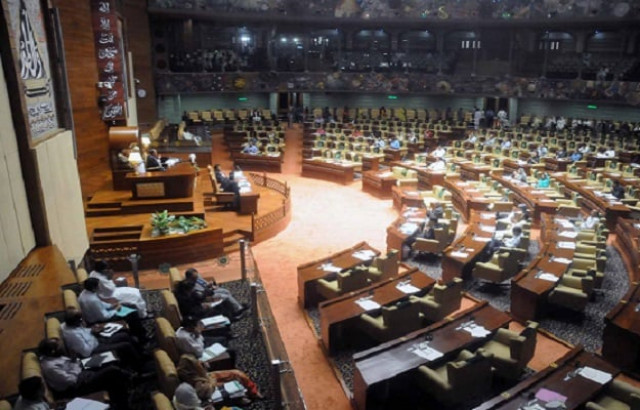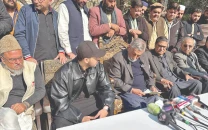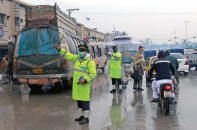Sluggish performance of standing committees
While some have only held introductory meetings, others have failed to organise even a single session

The standing committees of a legislative assembly, which consist of elected members, monitor the administrative and financial affairs of their respective provincial departments in addition to guiding the elected assembly in matters of legislation related to specific sectors. Unfortunately, however, the standing committees of the Sindh Assembly have yet to play an effective role in the governance of the province.
Although the Sindh Assembly has been in existence for almost a year, the majority of standing committees have so far only held introductory meetings while others have failed to hold even a single meeting. According to the records of the Sindh Assembly, after its formation following the General Elections held in February 2024, the provincial assembly received a total of 15 bills till December 2024, out of which eight were approved while four others were sent to different committees for review. However, these committees did not share their review with the Assembly up until January 2025, due to which no progress could be made on these bills.
Iqbal Detho, Chairman of the Sindh Human Rights Commission, believed that parliamentary committees were important in the sense that all over the world they played a crucial role not only in legislation, but also in the monitoring and implementation of laws, something which is known as post legislative scrutiny. Therefore, the role of parliamentary committees is of utmost importance, especially with regards to human rights related legislation and its implementation. As a result, parliamentary committees of departments like Women Development and the Labor and Child Protection Authority should include experts from the relevant fields in addition to the members of the Assembly so that their opinions can be added to the legal bills," urged Detho.
It should be noted that according to records of the Sindh Assembly, the total number of standing committees is 34. The chairmen of 20 of these committees are members belonging to the ruling Pakistan People's Party (PPP). Similarly, the chairmen of seven committees belong to the opposition party, Muttahida Qaumi Movement (MQM) while the chairmen of two standing committees are independent members supported by Pakistan Tehreek-e-Insaaf (PTI). On the other hand, the chairmen of five committees have yet to be elected.
According to the Special Secretary of the Sindh Assembly, Muhammad Khan Rind, the chairmen of the said committees have not been selected yet since some members are abroad. "The main difference between a standing committee and a public accounts committee is that the former only looks into the affairs of the concerned provincial departments while the latter examines the financial affairs of all the provincial departments," said Rind.
The chairmen of the standing committees related to the important provincial departments belong to the PPP due to its majority in the Sindh Assembly. These include the Home Department, Law and Parliamentary Affairs, Human Rights, Planning and Development, Primary and Secondary Health, Revenue and Land Utilization, School Education, Services and General Administration and Works and Services.
On the other hand, MQM members are the chairmen of standing committees for Culture and Tourism, Excise and Taxation, Information Science and Technology, Katchi Abadi's, Social Welfare, Women Development and Sports and Youth Affairs. Similarly, independent members supported by PTI are the chairmen of the standing committees for the Departments of Energy, Livestock and Fisheries. While the standing committees which have not yet held meetings include those for Finance, Food, Local Government Housing and Town Planning, Population Welfare and Transport.
"According to the Rules of Procedure of the Sindh Assembly, the Sindh Assembly, while enacting legislation related to any department, will send the proposed legal bill or draft to the relevant standing committee for review. Under the rules, the committee is also empowered to propose amendments to any bill," added Detho.



















COMMENTS
Comments are moderated and generally will be posted if they are on-topic and not abusive.
For more information, please see our Comments FAQ